Our mission has always been to source exceptional coffee that not only delivers outstanding flavour, but also supports the people and environments responsible for its cultivation.
That’s why we’re excited to announce our transition from Colombia Excelso to Colombia Viani. A coffee that stands for quality, traceability, transparency, and a positive impact.
The Story Behind Colombia Viani
Colombia Viani is sourced through Racafe, one of Colombia’s leading specialty coffee exporters since 1953. Racafe represents over 5,000 individual producers and is dedicated to advancing sustainable practices within the coffee industry.
What makes Viani truly special is its connection to the Crecer Project, a sustainability initiative funded through a premium added to the coffee Racafe sells.
This project embodies our shared commitment to preserving biodiversity, supporting coffee-growing communities, and enhancing coffee quality.
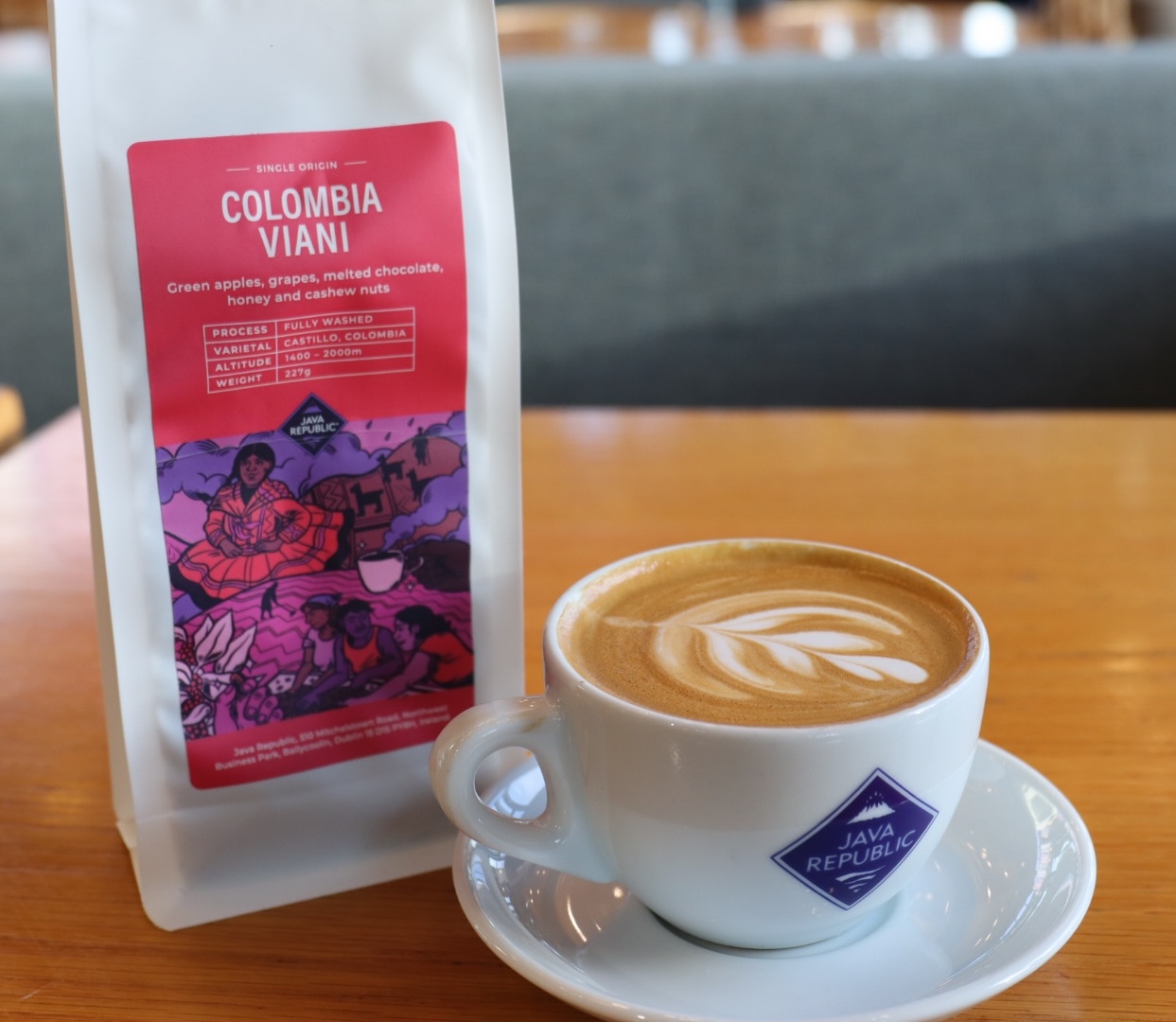
The Crecer Project: Sustainability in Action
Aligning with our own sustainable sourcing practices, the Crecer Project’s mission is to protect the environment and to uplift the communities growing coffee.
The funds collected through the project are channeled directly to the participating farmers, enabling them to implement sustainable practices that secure the future of their farms, while also improving coffee quality.
The Crecer Project breaks down sustainability into three categories: environmental, social and economic. Within these three categories, there are 21 specific indicators used to accurately assess each one effectively. For instance, when assessing a farm’s environmental sustainability, factors such as biodiversity, methods of weed control, pesticide usage, waste management (both organic and inorganic), and water usage for irrigation and processing are considered.
However, this project goes beyond environmental sustainability, Racafe also emphasizes the significance of social and economic sustainability. It focuses on both the immediate and long-term benefits for farmers as well as positive impacts on the planet. By providing training, business guidance, and other support, the Crecer project helps farmers increase the profitability of their farms, leading to tangible improvements in their livelihoods.
Every farmer participating in the Crecer project receives a field notebook, which serves as a tool for planning sustainable practices and tracking the farm’s progress over time.
The impact of Crecer extends far beyond the farm. It creates a positive ripple effect throughout the supply chain, benefiting the planet, fostering stronger connections between producers, roasters, and consumers. While also delivering coffee that is highly traceable, ethically sourced, and exceptional in quality.
Supporting initiatives like Crecer reinforces our belief that great coffee should be good for people and the planet.
Coffee Description
Grown at an altitude of 1400-2000m, Viani benefits from a favourable location with a diverse range of thermal floors – warm, temperate, and cold – providing excellent opportunities for agricultural diversification and efficient land use. Coffee harvesting in this region occurs across three collection stations, with approximately 70% processed through Mr. Joseel Castiblanco’s collection center near Quipile.
Coffee cherries are delivered either already processed on the farm or can be brought in wet if the quality is right, and dried in a guardiola on site. The typical workflow involves harvesting on Monday or Tuesday, followed by same-day depulping and a 48-hour fermentation process. Most volume is brought on market day.
When enough coffee is gathered, between 10,000 and 13,000 kilograms, a truck transports it to Bogotá for processing at Racafe’s dry mill. There, additional sorting and two rounds of cupping take place before the coffee is bagged and prepared for export.
Brewing Tips
The Colombia Viani end product that we can offer you is a fully washed Castillo Colombia varietal that boasts an exceptional SCA score of 84.
Perfect for espresso, we recommend an 18g dose with a 26-28 second extraction time to bring out its balanced and vibrant flavours.
With tasting notes of apples, chocolate, nuts and biscuits, this coffee is the perfect morning pick-me-up or a mid-day treat!
If you’d like to learn more about this incredible coffee, get in touch with us today or reach out to your Sales Rep. Want to enjoy this coffee at home? Check it out on our online webstore.
Interested in learning more about Coffee in Colombia? Keep reading!
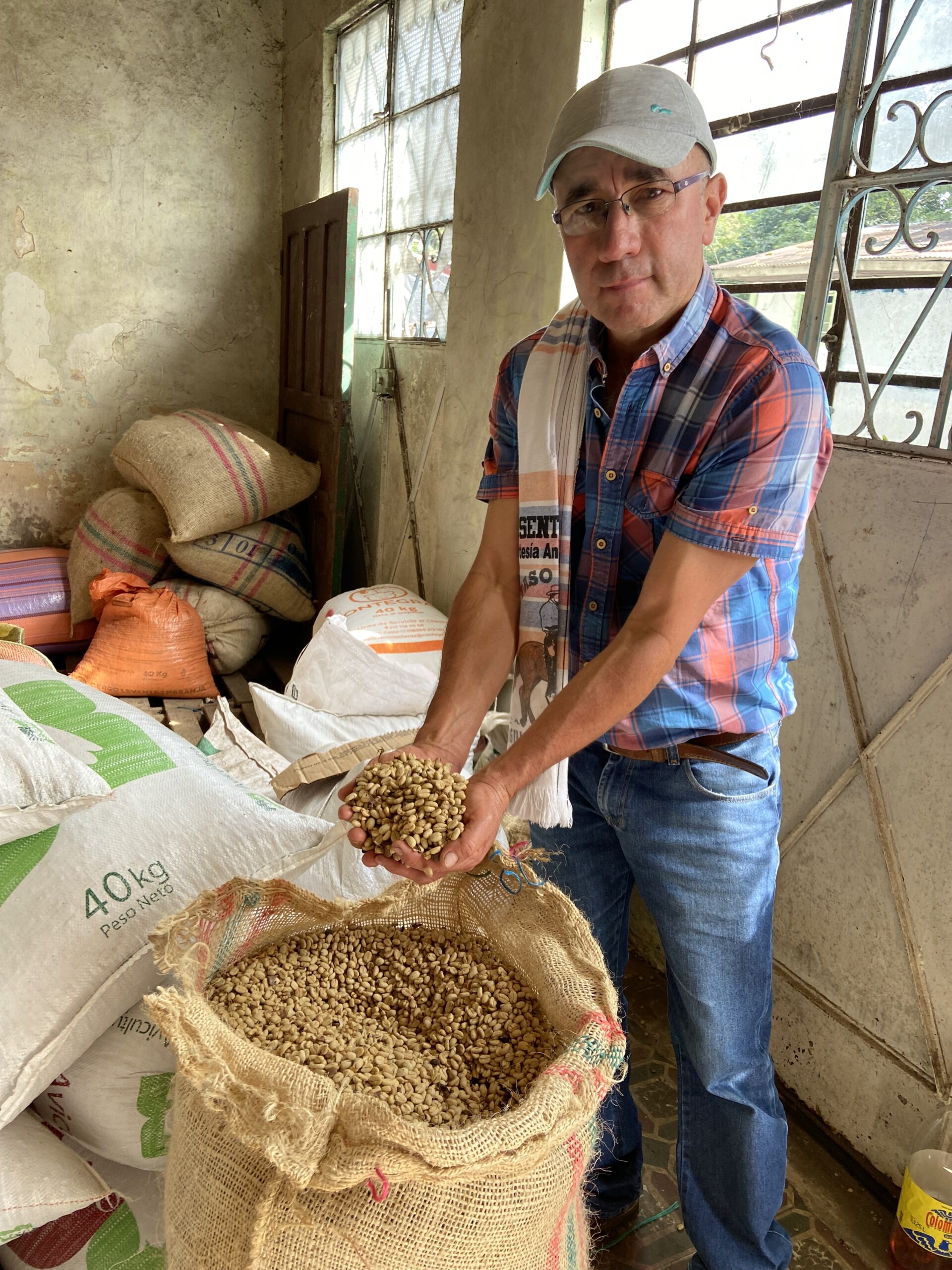
History of Colombian Coffee
The history of Colombian coffee dates back to the early 1700s when Jesuit priests introduced coffee cultivation to the country. By the mid-1800s, coffee had become a vital part of Colombia’s agricultural landscape, thriving in the country’s unique geography.
The combination of high-altitude mountain ranges, volcanic soil, and diverse microclimates created the perfect environment for producing premium Arabica beans. These natural conditions contribute to the distinct smoothness and rich flavour profile that Colombian coffee is celebrated for today.
Cultural Significance of Coffee in Colombia
Coffee now holds a deep cultural significance in Colombia, far beyond its economic value. It is woven into the fabric of daily life, where a cup of tinto – a small, strong black coffee – is a staple in homes, offices, and social gatherings.
Across the country, sharing coffee with friends, family, or visitors is a cherished custom that reflects the warmth and friendliness of Colombian culture. Coffee is more than just a beverage, it represents hospitality, tradition, and a sense of pride.
The coffee-growing regions of Colombia, known as the Eje Cafetero, are not only vital to the economy but also serve as cultural icons. Picturesque coffee farms, or fincas, and vibrant festivals celebrating coffee harvests are integral to local heritage.
Two of our employees, Roy Sanderson and Milena Bardyn, got the opportunity to visit some fincas on a coffee origin trip back in 2022. During the ten day trip, they met some of the amazing people behind the Colombian coffee beans that we source. Read Milena’s Colombia Coffee Origin Trip experience here.
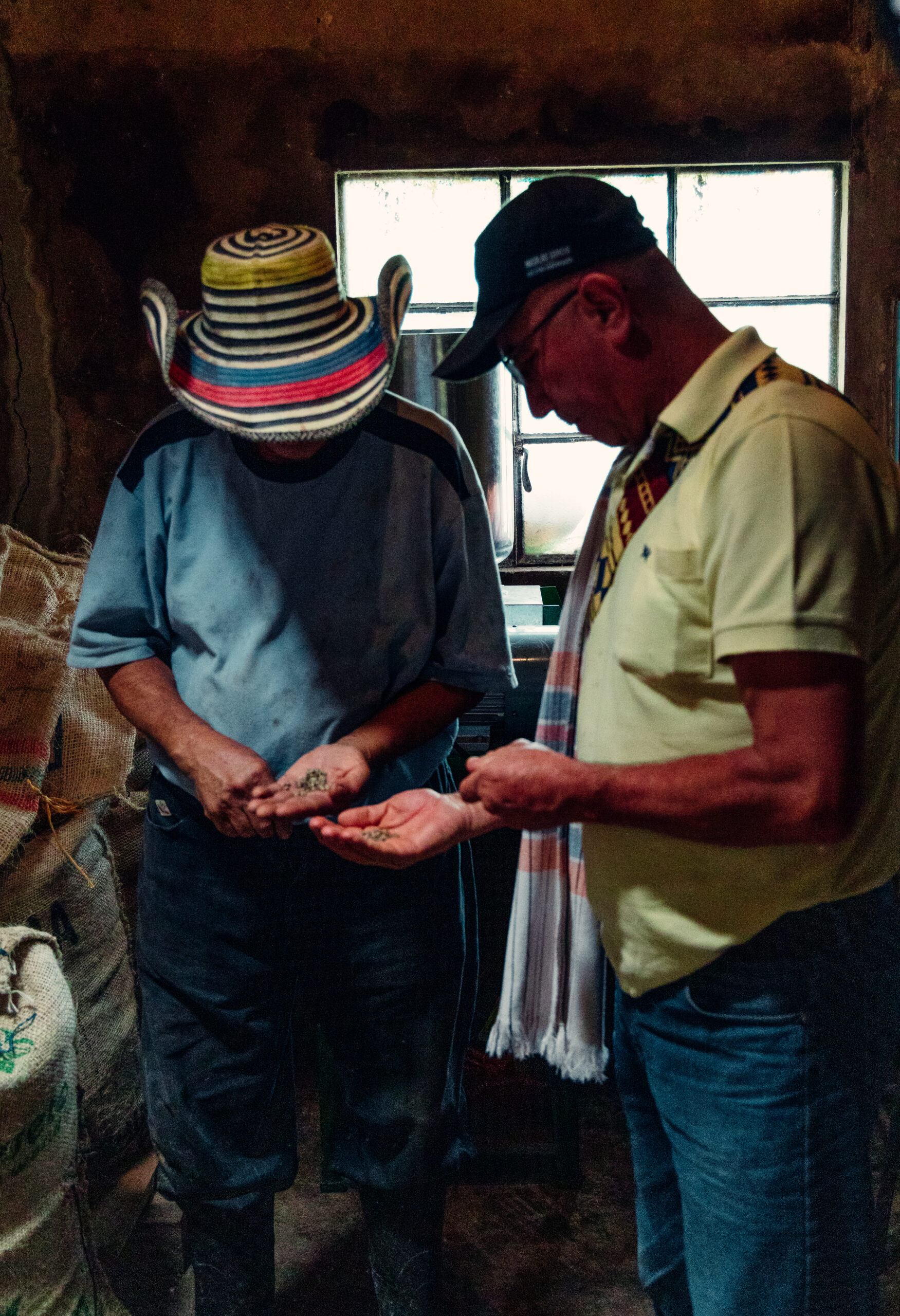


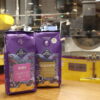
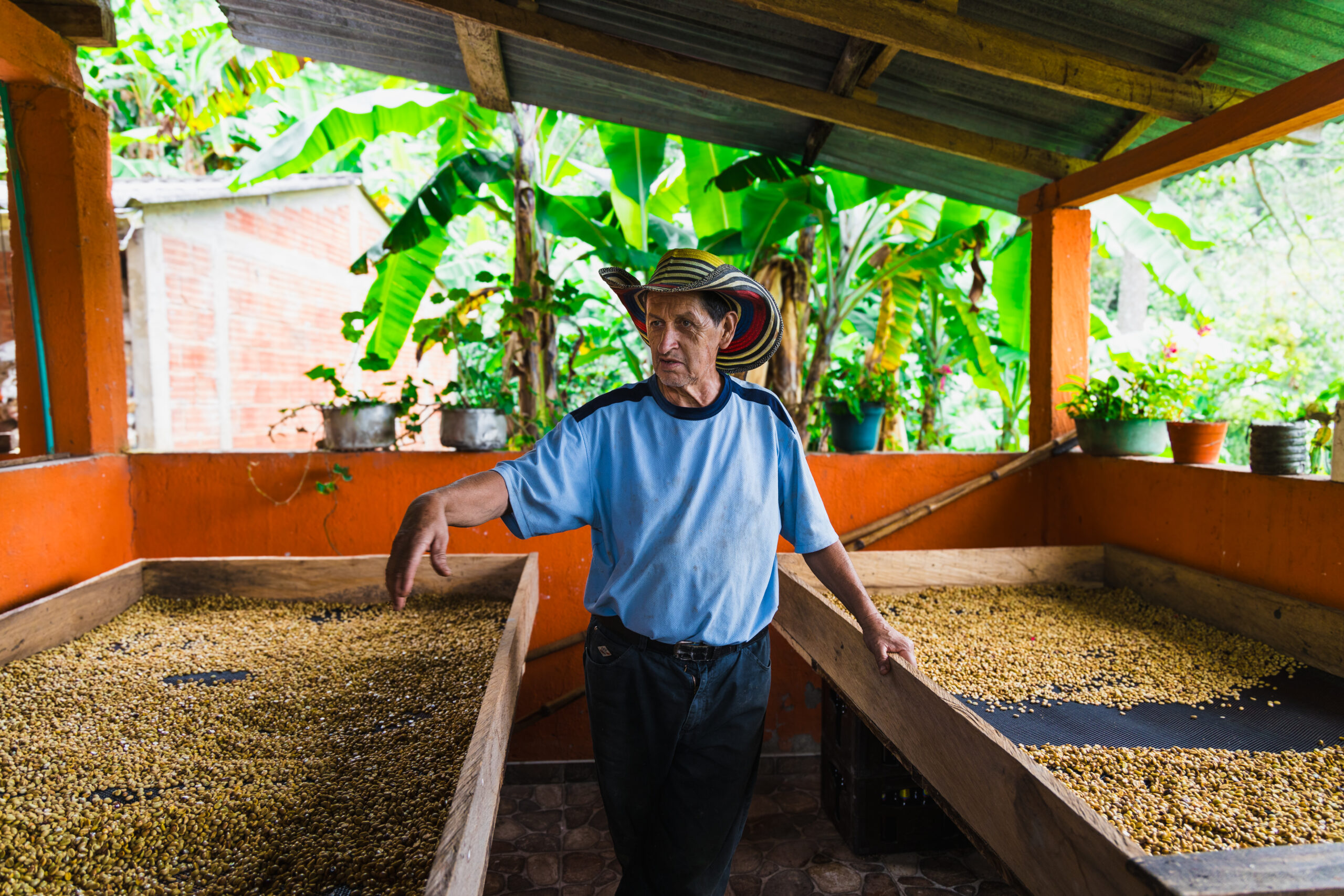
You must be logged in to post a comment.